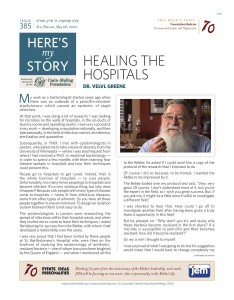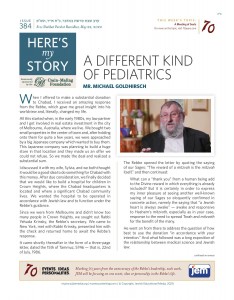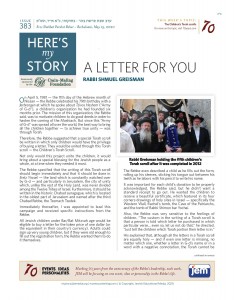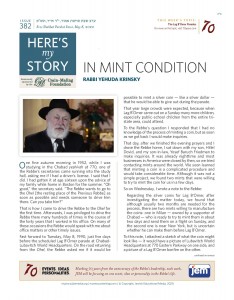Healing the Hospitals
My work as a bacteriologist started years ago when there was an outbreak of a penicillin-resistant staphylococci which caused an epidemic of staph infections.
At that point, I was doing a lot of research; I was looking for microbes on the walls of hospitals, in the air-ducts of laundry rooms and operating rooms. I was very successful in my work – developing a reputation nationally, and then internationally, in the field of infection control, disinfection, sterilization and quarantine.
Subsequently, in 1969, I met with epidemiologists in London, who asked me to take a leave of absence from the University of Minnesota – where I was teaching and from where I had received a Ph.D. in medicinal bacteriology – in order to spend a few months with them learning how disease spreads in hospitals and how their techniques could prevent this.
People go to hospitals to get cured. Indeed, that is the whole function of hospitals – to cure people. Unfortunately, too many times people go to hospitals and become infected. It’s a very insidious thing, but why does it happen? Because sick people with every type of disease come to hospitals – some ill from infectious diseases, some from other types of ailments. So you have all these people together in one environment. To design an isolation system between them is not easy to do.
The epidemiologists in London were researching the spread of infections within their hospital wards, and when they invited me to come to learn their techniques, I asked the blessing for success from the Rebbe, with whom I had developed a relationship over the years.
I was very proud that I had been invited by these people at St. Bartholomew’s Hospital who were then on the forefront of studying the epidemiology of antibiotic-resistant bacteria – one of whom has since been knighted by the Queen of England – and when I mentioned all this to the Rebbe, he asked if I could send him a copy of the protocol of the research that I intended to do.
Of course I did so because, to be honest, I wanted the Rebbe to be impressed by it.
The Rebbe looked over my protocol and said, “Very, very good. Of course, I don’t understand most of it, but you’re the expert in the field, so I wish you great success. But, if you ask me, it might be a little more fruitful to investigate a different field.” (more…)








